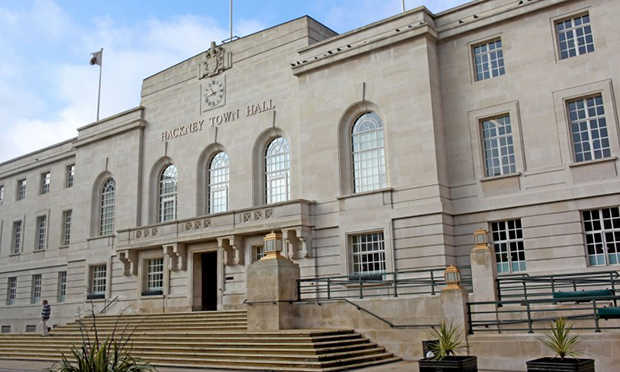Explainer: What statutory powers do councils have over academies?

Hackney Town Hall
The Department for Education’s (DfE’s) move towards academisation over the past two decades has created a complex, multi-layered education system in England, comprising an array of school types, each maintained by different government and non–government authorities.
Under the current government, however, this patchwork arrangement is set to undergo further reform.
In the meantime, this explainer looks at what statutory powers local authorities currently have over academies.
The Local Government Association says that councils still ‘retain the bulk of their statutory responsibilities’ over schools in their area – including setting their admissions policies and catchment areas, ensuring that there are sufficient school places in their area, and agreeing a local formula for the distribution of funds received from the government.
Underperforming schools
If local authority-maintained schools are underperforming, councils have legal powers to intervene.
For example, it can issue a “warning notice”, with which failure to comply will lead to formal intervention.
However, if a council becomes aware that an academy is underperforming, it has no legal power to intervene directly.
It is instead required to report its concerns to the Department for Education’s (DfE) regional representatives.
SEND pupils
Local authorities have a number of statutory duties over children with special educational needs and disabilities (SEND) – responsibilities that extend to pupils attending academies.
Councils, in partnership with all schools in their area, including academies, must identify all children with SEND.
They are required to keep SEND education provision under constant review, and collaborate with teachers, care-workers and parents to produce Education, Health and Care Plans for all children eligible for them.
However, if a council has concerns regarding the quality of SEND provision at an academy, it has no power to intervene, and must instead raise the issue with the DfE’s regional representative.
Safeguarding
Councils have a statutory duty to safeguard all children living in their area, whether in or out of school.
The 2004 Children Act states that councils have an “overarching responsibility for safeguarding and promoting the welfare of all children and young people in their area”.
However, all safeguarding concerns with regard to academies must be raised directly with the DfE by the local authority.
Day-to-day running
Unlike local authority-maintained schools, academies are run by not-for-profit trusts under contract with the DfE.
These academy trusts, sometimes structured as ‘Multi-Academy Trusts’ (MATs) with oversight over several academies, lack direct accountability to local authorities, and their governance structures vary.
Key decision–making power is held by a number of trustees.
While local authority-maintained schools are required by law to appoint governing bodies with parent and staff representatives, academies are not.
Reforms
If the current government’s reforms are enacted, they are likely have an impact of the number of new academies emerging.
Where a need for a new school is identified, for example, local authorities will be permitted to welcome proposals for both local authority-maintained schools and academies – ending the free school presumption.
Equally, the Bill will remove the requirement for all schools deemed to be “causing concern” by Ofsted to be transformed into academies.
However, many of the government’s proposed reforms seek not to re-delegate power over schools to local authorities, but to strengthen the DfE’s powers of scrutiny over academies.
A new legal mechanism – a “compliance direction” – will allow the government to intervene if an academy trust breaches its statutory obligations.
Similarly, the reforms will require all teachers in academies to possess or be working towards “qualified teacher status” and mandate that all academies teach in accordance with the DfE–prescribed national curriculum.
Ofsted
While Ofsted undertakes periodic assessments of all academies, it does not currently evaluate the management of MATs.
The Bill seeks to extend Ofsted’s inspection regime to MATs, in effect applying DfE scrutiny to every level of academy governance.
Academies in Hackney
In 2023/24, eight in 10 state–funded secondary schools in England operated as academies.
Currently, 12 of Hackney’s 16 secondaries are academies.
These are:
The City Academy
The Bridge Academy
Cardinal Pole RC School
City of London Academy
Shoreditch Park
Clapton Girls’ Academy
The Excelsior Academy
Haggerston School
Lubavitch Senior Girls’ School
Mossbourne Community Academy
Waterside Academy
Mossbourne Victoria Park Academy
Skinners’ Academy
